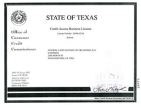Budget Tips for New Parents
If you’re about to embark on the life-changing journey of parenthood, you’re likely feeling a bit overwhelmed by all there is to learn and prepare for. There is no doubt that having a child is expensive, and budget concerns can be one of the key things that get new parents keyed up as they begin caring for a baby. By following these helpful budget tips for new parents, rookie moms and dads can get a handle on their finances and save their focus for what really matters: that new little bundle of joy!
Charting New Financial Waters
When it comes to spending, new parents can no longer put fun and luxuries at the top of their lists. Extra cash that once went to pleasure shopping, going out with friends, and eating out must now be used for diapers, daycare, and a hundred other things that were never on your radar before a new baby came along. As new moms and dads adjust their spending habits to meet a baby’s needs, the following tips can greatly help.
- Stay United: Financial priorities change rapidly once a child enters the picture, and spouses and partners should set financial goals together and regularly discuss and prioritize these goals. A desire to save up for a down payment on a house or feeling the urgent need to start a college fund for Baby can have you stretching your dollars too thin before you know it. Prioritize the needs that are most important and do only what you comfortably can. This will likely mean setting aside less important financial goals for now in favor of the more immediately necessary ones.
- Find Creative Solutions: There are many ways new parents can save money and better stay afloat as they adjust to the costs of having a baby. For instance, to stave off the often astronomical costs of childcare, one parent may elect to stay at home while the other works. A move like this will likely mean tightening the belt as you move to a one-income lifestyle, but creative budget cuts can help there, as well.
- Take Stock: Make a detailed list of where your money is going and find and eliminate the unnecessary fund drains. You may be surprised to learn just how many unnecessary expenditures are depleting your checking account. For example, paying for a premium cable TV package when a less expensive and more basic one will do; regularly ordering costly takeout rather than cooking at home; buying name brand products when a generic would do just as well. Saving a little in a lot of places will add up fast.
- Build Up Your Savings: Parents should absolutely have emergency funds in reserve to protect against unforeseen occurrences, like job losses or medical emergencies. If you make a regular habit of setting aside a small percentage of each paycheck, even just five or 10 percent, it will build up quickly. Setting up an auto-deposit is a good way to do this. If the money is safely in savings, you won’t figure it into your monthly spending funds and it will remain safely in your savings account for a rainy day.
